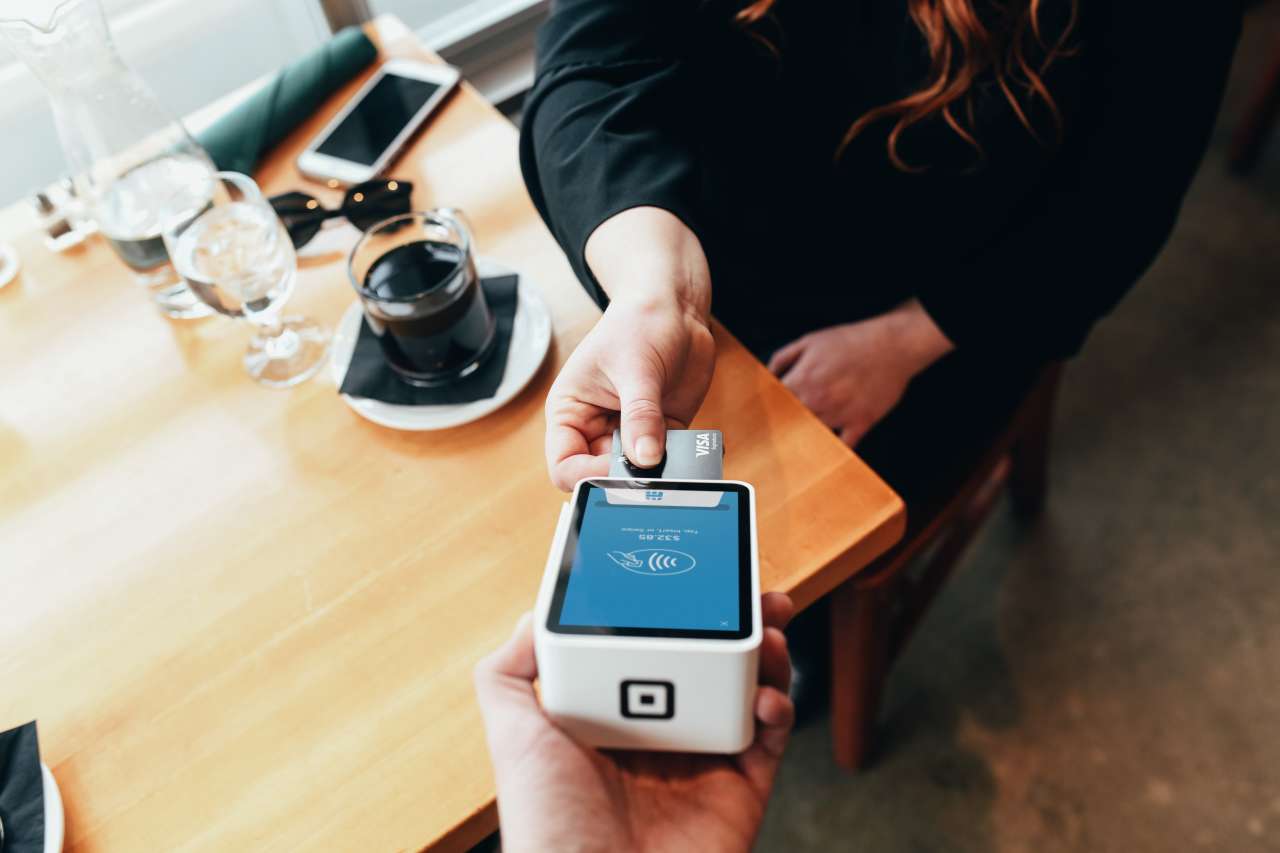Open Banking
Open Banking is a way for SMEs to use financial products and services. Open Banking allows businesses to give lenders secure access to their bank account information, speeding up the process of applying for finance. Find out more about Open Banking and Open Accounting for SMEs.

What is Open Banking?
Open Banking gives providers like Funding Options secure access to a business bank account, to help speed up the process of applying for finance. Based on Application Programming Interfaces (APIs), Open Banking is a secure way to use technology to send information between different pieces of software.
Here at Funding Options, we use API’s in our own technology in Funding Cloud which connects some of our lenders and find the most relevant
This approach is used in other industries and the most famous use of APIs is probably in Google Maps. Google allows other apps and websites to use the map API to show maps without having to build it from scratch. We also use APIs in our own Funding Cloud technology which helps connect to some of our lenders, letting us see the most relevant and competitive funding options for our customers super fast.
If you’ve applied for a business loan, it’s likely the provider will use a third party app to view your business bank account to help understand your current finances and speed up the process of securing a loan.
How does Open Banking work?
When applying for a business loan, as part of the application process your business will be asked to give consent to a regulated third-party provider like Funding Options, to have a ‘read-only’ access to your business bank account.
You'll use your business online banking credentials to log into your account and approve our request for access. We never see your username or password as sensitive information like that is handled by your bank directly. As we only ask for "read-only" access, we can't move money or make payments, just understand your current financial situation.
Once we can securely view your account information, we’re able to do things like automatically create bank statements to make the process of getting a business loan smoother and faster. The use of technology like APIs in the financial industry has come with caution too and several myths being generated out of misunderstandings or lack of information.
One of the main myths around Open Banking is that it's limited to only sharing insight into a business bank account, giving a limited view of a business’s finances.
Whilst Open Banking isn’t limited to only giving lenders an account balance as you can see previous transactions, and when paired with Open Accounting it can offer a more complete understanding of a business’s finance. Lenders are able to have a holistic view of a business’s performance, helping them to make a decision quicker.
Open Accounting vs Open Banking
Open Accounting helps to fill in the gap between the accounts performance and bank balance of a business that Open Banking provides. Using a combined approach means lenders access the most up to date information on the accounts and business bank statements.
Instead of using accounting information from Companies House which can be outdated by up to 18 months, Open Accounting connects with real-time data.
Using the same API technology as Open Banking, Open Accounting accesses a merchant’s accounting package, providing the most recent sales data. Much like Open Banking, Open Accounting comes with it’s own myths, most prominently that it breaches data privacy.
By combining both Open Banking and Open Accounting, lenders are able to build custom finance products to suit SME businesses that have previously been an afterthought of bigger banks. By using technology to help speed up the application process, both Open Banking and Open Accounting saves lenders precious time and resources.
FAQs for Open Banking
Is Open Banking safe?
Yes. Open Banking is safe as it uses bank-level security and you'll never be asked to give your username or password to anyone except your own bank or building society.
Every provider using Open Banking requires special regulation by the FCA. You can see our regulated status here.
The rules associated with Open Banking say that providers can only see your information if you’ve given them consent to do so, and you can withdraw your consent at any time.
Looking for finance?
Let us help you find the best financial product in the market. We will guide you through the whole process and make sure you get the best deal.
Is There A Charge for Open Banking?
No, there are no charges for using Open Banking or Open Accounting. There might be charges associated with some regulated apps or websites using Open Banking as a feature but they will make their charges known. This is usually for using their products or services, not for using Open Banking.
Looking for finance?
Let us help you find the best financial product in the market. We will guide you through the whole process and make sure you get the best deal.
Why should I connect my bank account?
Connecting your business account to Open Banking is much easier and faster than sending us bank information manually when applying for a loan.
When applying for business finance, every lender will request 3-6 months of business bank statements as part of their application process. Using Open Banking means we can generate these for you in seconds.
If you choose not to use Open Banking, you'll have to access your online banking, download them, and email them to us.
Looking for finance?
Let us help you find the best financial product in the market. We will guide you through the whole process and make sure you get the best deal.
Funding Options is a part of Tide. If you proceed, you’ll be redirected to Tide.
This quote won't affect your credit score
Get access to 120+ lenders
Open Banking
Open Banking is a way for SMEs to use financial products and services. Open Banking allows businesses to give lenders secure access to their bank account information, speeding up the process of applying for finance. Find out more about Open Banking and Open Accounting for SMEs.
Funding Options is a part of Tide. If you proceed, you’ll be redirected to Tide.
This quote won't affect your credit score
Get access to 120+ lenders
What is Open Banking?
Open Banking gives providers like Funding Options secure access to a business bank account, to help speed up the process of applying for finance. Based on Application Programming Interfaces (APIs), Open Banking is a secure way to use technology to send information between different pieces of software.
Here at Funding Options, we use API’s in our own technology in Funding Cloud which connects some of our lenders and find the most relevant
This approach is used in other industries and the most famous use of APIs is probably in Google Maps. Google allows other apps and websites to use the map API to show maps without having to build it from scratch. We also use APIs in our own Funding Cloud technology which helps connect to some of our lenders, letting us see the most relevant and competitive funding options for our customers super fast.
If you’ve applied for a business loan, it’s likely the provider will use a third party app to view your business bank account to help understand your current finances and speed up the process of securing a loan.
How does Open Banking work?
When applying for a business loan, as part of the application process your business will be asked to give consent to a regulated third-party provider like Funding Options, to have a ‘read-only’ access to your business bank account.
You'll use your business online banking credentials to log into your account and approve our request for access. We never see your username or password as sensitive information like that is handled by your bank directly. As we only ask for "read-only" access, we can't move money or make payments, just understand your current financial situation.
Once we can securely view your account information, we’re able to do things like automatically create bank statements to make the process of getting a business loan smoother and faster. The use of technology like APIs in the financial industry has come with caution too and several myths being generated out of misunderstandings or lack of information.
One of the main myths around Open Banking is that it's limited to only sharing insight into a business bank account, giving a limited view of a business’s finances.
Whilst Open Banking isn’t limited to only giving lenders an account balance as you can see previous transactions, and when paired with Open Accounting it can offer a more complete understanding of a business’s finance. Lenders are able to have a holistic view of a business’s performance, helping them to make a decision quicker.
Open Accounting vs Open Banking
Open Accounting helps to fill in the gap between the accounts performance and bank balance of a business that Open Banking provides. Using a combined approach means lenders access the most up to date information on the accounts and business bank statements.
Instead of using accounting information from Companies House which can be outdated by up to 18 months, Open Accounting connects with real-time data.
Using the same API technology as Open Banking, Open Accounting accesses a merchant’s accounting package, providing the most recent sales data. Much like Open Banking, Open Accounting comes with it’s own myths, most prominently that it breaches data privacy.
By combining both Open Banking and Open Accounting, lenders are able to build custom finance products to suit SME businesses that have previously been an afterthought of bigger banks. By using technology to help speed up the application process, both Open Banking and Open Accounting saves lenders precious time and resources.
FAQs for Open Banking
Is Open Banking safe?
Yes. Open Banking is safe as it uses bank-level security and you'll never be asked to give your username or password to anyone except your own bank or building society.
Every provider using Open Banking requires special regulation by the FCA. You can see our regulated status here.
The rules associated with Open Banking say that providers can only see your information if you’ve given them consent to do so, and you can withdraw your consent at any time.
Looking for finance?
Let us help you find the best financial product in the market. We will guide you through the whole process and make sure you get the best deal.
Is There A Charge for Open Banking?
No, there are no charges for using Open Banking or Open Accounting. There might be charges associated with some regulated apps or websites using Open Banking as a feature but they will make their charges known. This is usually for using their products or services, not for using Open Banking.
Looking for finance?
Let us help you find the best financial product in the market. We will guide you through the whole process and make sure you get the best deal.
Why should I connect my bank account?
Connecting your business account to Open Banking is much easier and faster than sending us bank information manually when applying for a loan.
When applying for business finance, every lender will request 3-6 months of business bank statements as part of their application process. Using Open Banking means we can generate these for you in seconds.
If you choose not to use Open Banking, you'll have to access your online banking, download them, and email them to us.
Looking for finance?
Let us help you find the best financial product in the market. We will guide you through the whole process and make sure you get the best deal.
